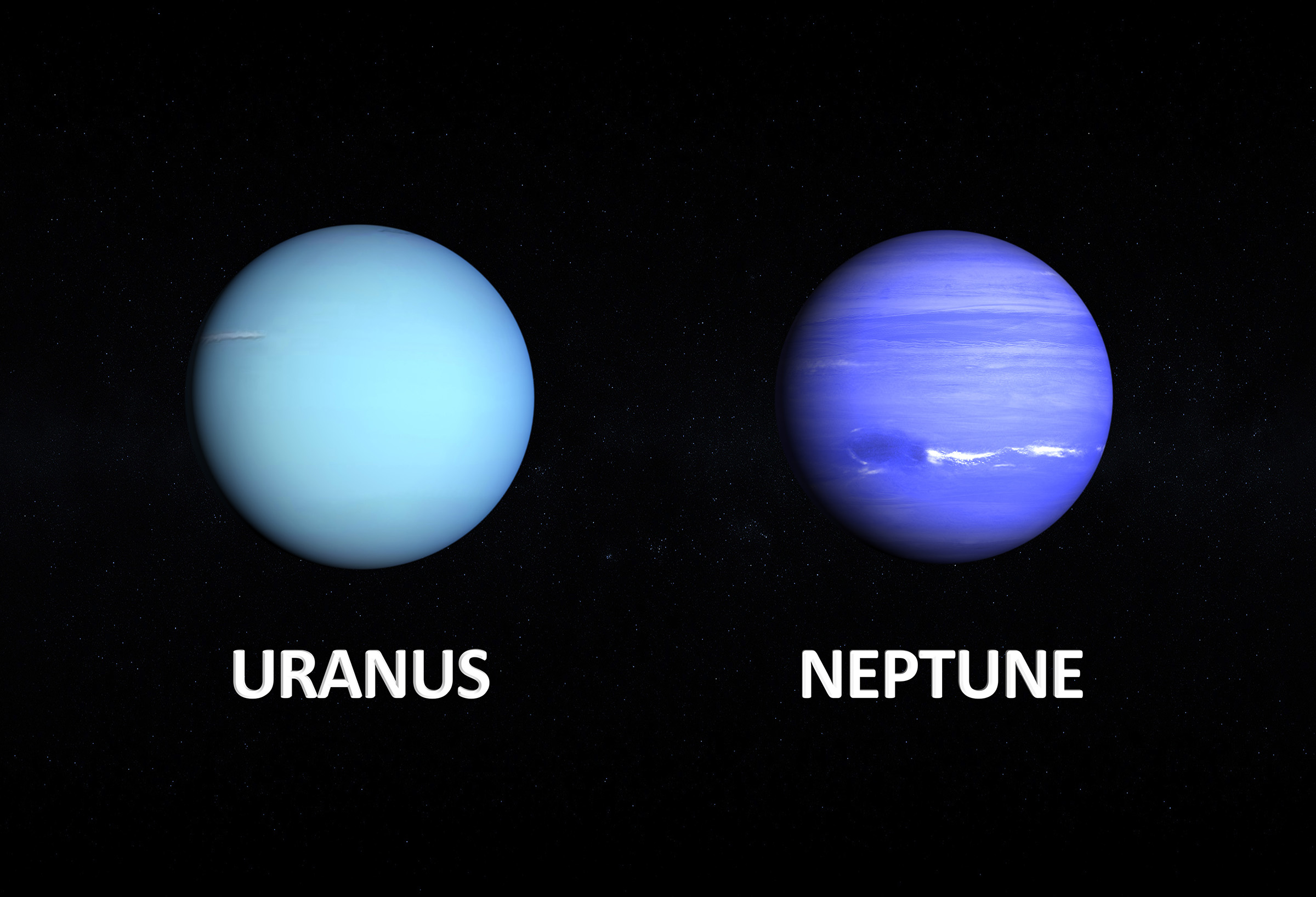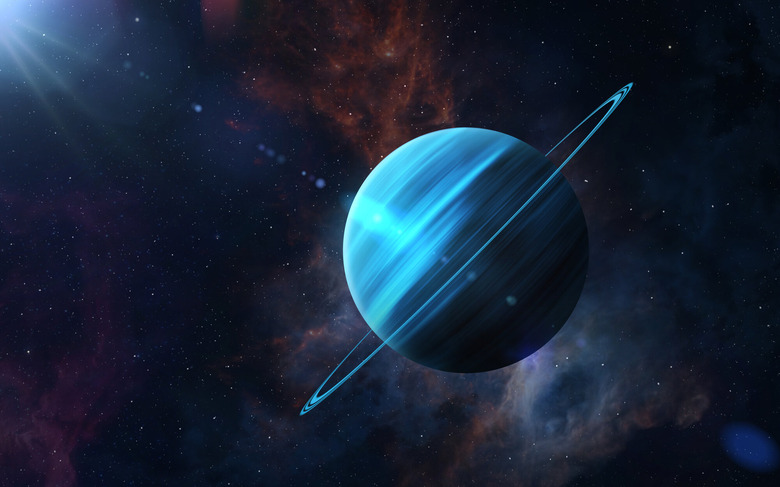Scientists May Have Figured Out What Makes Uranus So Weird
Uranus has always been an intriguing planet for astronomers to study. First discovered in 1781, Uranus quickly became known for its odd and extremely "off-kilter" tilt. The seventh planet from the Sun has always seemed to march to its own beat, and while it might share some similarities with other ice giants in our solar system, Uranus' tilt has always baffled scientists.
Now, though, a group of researchers may have discovered why Uranus has such an unusual tilt. Neptune and Uranus have often been cited as planetary "twins" partly because of their blueish color and similarities. Of course, Neptune's axis isn't nearly as skewed as Uranus, which is one reason that scientists have struggled to determine what caused Uranus' strange tilt.
According to a new study in Astronomy and Astrophysics, the reasoning may have to do with a long-lost satellite. The study, which has yet to be peer-reviewed, is available on arXiv, a preprint server. The researchers involved in the study say that a satellite migrating away from Uranus could have caused it to fall on its side, causing the tilt we know today.

This reasoning, they say, is plausible for several reasons and isn't the only model that astronomers have come up with. Others have said that Uranus may have been devastated by something long ago, causing its unique tilt. Even more people believe that a group of smaller objects could have been the cause of the slanting tilt.
But, these hypotheses are tough to prove, especially if you look at the similarities between Uranus and Neptune. As "twins," many believe they were born together. This means that those kinds of impacts would have also left Neptune susceptible to similar changes if it were hit. This is why so many believe a giant ring system or a lost satellite are the main cause for Uranus' unique tilt.
This possible moon movement is also backed by new research that Jupiter's tilt is slowly increasing as its moons migrate away from it. Further, Saturn's tilt may also be tied to the migration of its largest moon, Titan. This isn't an unusual circumstance, either. Even our own moon is slowly migrated away from Earth. But, proof that this is the cause of Uranus' tilt still remains to be seen.
Once this research is peer-reviewed and additional studies of Uranus are done, perhaps scientists will be able to say for sure whether or not Uranus' tilt is caused by a long-lost satellite migrating away from it.
